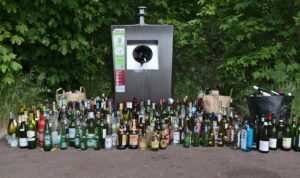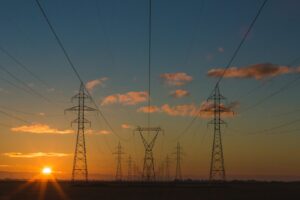EU energy use to fall by 30% under new efficiency plans for 2030
The European Commission says that it plans to cut energy use across the bloc by 30% by 2030.
The proposal is at the heart of a new package unveiled by the Commission to help meet its commitments to cut carbon under the Paris agreement.
The plans also seek to boost renewables and give greater power to consumers to sell any electricity they produce. But green groups have criticised the measures saying they keep the door open for subsidies to coal.
Under the Paris Climate Agreement the EU promised to cut emissions of CO2 by 40% by 2030. Today’s plans to cut waste and make better use of renewables are a key part of that promise.
The Commission’s ideas for a 30% binding target on energy efficiency will see new incentives for smart metering and innovative design. Energy suppliers and distributors will have to save 1.5% each year from 2021 to 2030.
There will also be a big focus on renovating older buildings. This sector accounts for 40% of Europe’s energy consumption and the proposal aims to create a building renovation market with a value of up to 120bn euros by 2030.
The EU says that their Smart Finance for Smart Building initiative will allow member states to unlock an additional 10bn euros in public and private funds until 2020.
‘I’m particularly proud of the binding 30% energy efficiency target,’ said EU climate commissioner Miguel Arias Cañete.
‘It will reduce our dependency on energy imports, create jobs and cut more emissions.’
While welcoming the move on efficiency, campaigners believe the EU could have gone even further.
‘It is good to see this commitment from the EU,’ said Brook Riley from Friends of the Earth.
‘It is a real achievement and it will lift millions of people out of energy poverty and increase emissions cuts, but all of these elements are better with higher ambition. Why stop at 30%? Why not go further and meet the EU’s full potential?’
The Commission also reiterated it’s policy of having renewables make up at least 27% of final energy consumption by 2030, including a 50% share of electricity production.
However, in markets where they already have a 15% share, green energy producers will no longer have priority to sell their power to the grid over traditional producers such as coal and gas – a negative development according to many environmental campaigners.
The Commission’s plan also aim to encourage individual consumers and community groups to produce their own power.
Small-scale renewable installations will still have priority on the grid – but there will be a limit on the size of the community or individual power supply.
‘It is scandalous to cap the size of renewable energy cooperatives and bias market access in favour of inflexible fossil fuel giants,’ said Tara Connolly from Greenpeace
‘Europe will only meet its climate responsibilities if it enables its citizens to accelerate the transition to 100% renewables.’
Another contentious issue is the proposal to limit subsidies for fossil fuels in what are called capacity mechanisms, reserve supplies of power that member states keep on tap to prevent blackouts.
These are often coal or gas fired plants but the Commission wants to impose a limit of 550 grams of carbon dioxide per kilowatt hour, which would rule out older coal plants but not newer, more efficient ones.
‘The CO2 limit proposed for capacity markets is a bad joke, said Christian Schaible from the European Environmental Bureau.
‘It impacts practically none of the existing EU coal fleet and fails to address the toxic health and other environmental impacts of coal.’
Supporters point out that these capacity mechanisms will now have to be open to cross border competition and will include schemes which cut demand as a way of ensuring more power is available.
One area where the Commission is making a sharp U-turn is on the use of crop-based biofuels in transport. Instead the EU wants to see newer fuels made from agriculture or forestry waste take up a much bigger share.
Today’s proposals will now need to be approved by member states and the European Parliament.
For the UK, it is not yet know if the new proposals will become law before Brexit. Sources say that the opportunities to bid from some of the funding available under the schemes and to supply energy to neighbouring markets will be the subject of negotiations as part of the UK’s exit.















